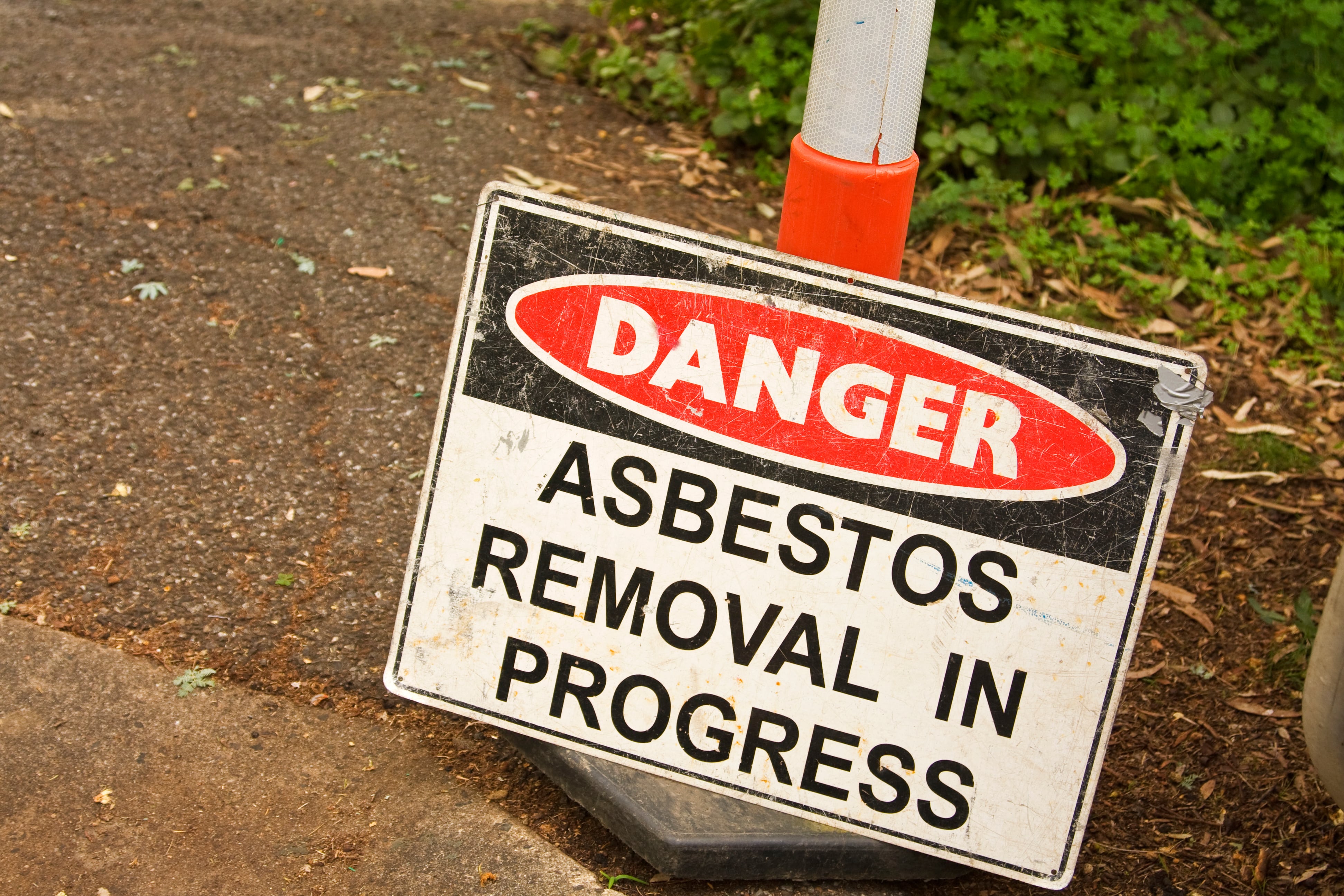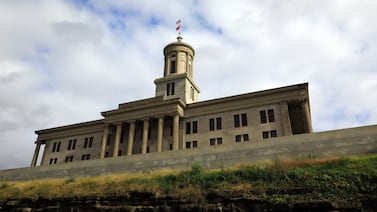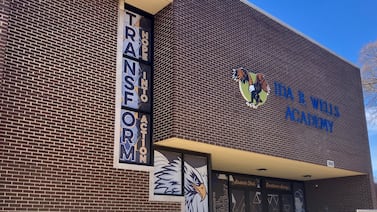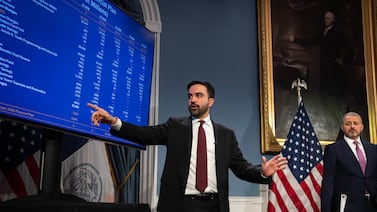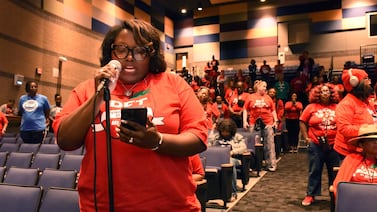Sign up for Chalkbeat Philadelphia’s free newsletter to keep up with news on the city’s public school system.
The Philadelphia Board of Education was scheduled to consider and vote on an agreement Thursday with the U.S. Department of Justice related to an investigation into how it manages asbestos in its buildings.
But by the noon board meeting — which members rescheduled at the last minute to address the expected DOJ agreement — the two sides had not finalized an agreement, Board President Reginald Streater said.
“We were informed just before this meeting that the Department of Justice is not ready to proceed today and additional reviews may be required,” Streater said at the beginning of the meeting.
Although there’s no deal to address or resolve the DOJ investigation, the situation highlights an ongoing challenge for district school buildings. The district has temporarily or partially closed several schools to remediate damaged asbestos in the last few years. Schools in Philly are on average 73 years old, and some 300 buildings contain asbestos — which builders used frequently for the first several decades of the 20th century — according to the district.
Details on the DOJ’s investigation into the district’s asbestos monitoring program remain unclear. Streater said the board was unable to comment further on the investigation and will “follow up at the appropriate time.”
The DOJ did not immediately respond to Chalkbeat’s questions about its investigation into the district, its findings, or why the expected agreement was delayed.
Streater added that he recognized that changing Thursday’s meeting time created inconveniences for some who wanted to attend, including several students who signed up to speak but were attending class during the meeting.
Following Streater’s announcement, jeers erupted from members of the advocacy group Alliance for Philadelphia Public Schools. “We don’t understand,” several members of the group shouted.
Earlier in the day, the group called on school board members to resign their positions over concerns that their decision to change the meeting time at the last minute may have left people who registered to speak unable to attend.
“Any board which silences its own constituents, and the people of Philadelphia, works against the best interests of the schoolchildren of the city,” said Lisa Haver, the organization’s coordinator.
Ongoing concerns over asbestos in Philadelphia schools
The investigation into the district’s asbestos management program comes as the district is undergoing a major facilities planning process that was in part initiated to address ongoing environmental issues with its buildings that involve lead, mold, and heating and cooling problems, as well as asbestos.
But the district is also staring down a budget deficit, and previously estimated it needs close to $5 billion to address the most pressing structural needs.
Asbestos was a common building material used in insulation and paint for decades until the public became aware that it can cause health problems in the 1960s. When asbestos breaks down, it can release microscopic fibers into the air that can cause breathing problems and some forms of cancer.
Most people are exposed to asbestos in their daily lives without becoming ill, according to national research. However, those who are exposed to the substance regularly can face serious illnesses.
One Philly teacher is currently suing the district after he was diagnosed with cancer following years of working at Frankford High School. The district closed Frankford in 2023 to remediate damaged asbestos.
It’s common for districts nationwide, especially those with older buildings, to have asbestos-containing materials in their schools. Completely removing those materials is often impossible without costly and extensive renovations. The federal government requires districts regularly inspect schools for asbestos and prepare management plans to mitigate the risk, including removing or enclosing asbestos so that the material cannot break down into the air.
When districts find damaged asbestos-containing materials, they are supposed to immediately implement remedial measures to reduce exposure risk for staff and students.
The district publicly posts detailed asbestos inspection reports for each school on its website. It also created a “swing space” plan to identify buildings where students and teachers could be moved if their schools are closed due to damaged asbestos or other environmental hazards.
The district’s website used to host a user-friendly map with information about each school’s building conditions, but the district replaced that site with lengthy PDF documents of each inspection report.
Rebecca Redelmeier is a reporter at Chalkbeat Philadelphia. She writes about public schools, early childhood education, and issues that impact students, families, and educators across Philadelphia. Contact Rebecca atrredelmeier@chalkbeat.org.

